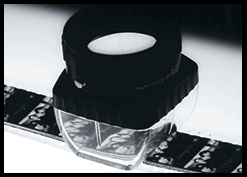indieWIRE Profiles Tribeca Film Festival Programmers
/Toolkit I Meet the Tribeca Film Festival Programmers (In Their Own Words)
by Brian Brooks (December 8, 2010) [
Excerpt
]
Among the many festivals indieWIRE covers yearly, April’s Tribeca Film Festival is one of the most anticipated and largest. As part of iW‘s ongoing series profiling film festival programmers in the iW Toolkit, the thoughts and advice of the Tribeca Film Festival‘s programmers take the spotlight below. Born out of the 9/11 attacks early last decade, Robert De Niro, Jane Rosenthal and Craig Hatkoff created a film event in part to help revitalize the neighboring Ground Zero neighborhood of TriBeCA. Since its 2002 launch, TFF has grown to say the least (...)
Tribeca Film Festival co-founders Rober De Niro and Jane Rosenthal at the festival's awards ceremony last Spring. Photo by Brian Brooks/indieWIRE.
Tribeca Film Festival programmer profiles:
Jon Gartenberg, Experimental Film Programmer
Gartenberg on the approach Tribeca takes…
In each edition of the Tribeca Film Festival, the experimental works are included in all the various festival sections. Our approach is different from other festivals, where avant-garde films are segregated into their own area, and therefore tend to be marginalized.
This distinct approach at Tribeca enables our general audience to become engaged with these formally cutting edge and more personal kinds of films. Moreover, the experimental films compete for awards on an equal playing field against other kinds of movies. Two experimental films have won major prizes at Tribeca: Jennifer Reeves’ “The Time We Killed” (best New York narrative, TFF ’04) and Steve Bilich’s “Native New Yorker” (best documentary short, TFF ’06).
And on the evolving nature of the festival, and experimental films…
The shift in the economics of film distribution away from the model of theatrical releases, advances, and extensive print and advertising campaigns is in the process of producing some significant transformations in the ways that film companies, boutique distributors, and even film festivals operate. For a number of film festivals, this currently involves outreach via digital distribution means to a public residing in more remote locations than the festivals brick-and-mortar screening locales.
Experimental films and videos historically have been shown to limited audiences in an array of nonprofit and alternative spaces. These include museums, universities, libraries, galleries, microcinemas, lofts, storefronts, clubs, independent theaters, and informal gatherings of filmmakers showing new works to each other. Their films have been self-distributed, primarily through nonprofit filmmaker cooperatives.
With the advent of digital technology, experimental filmmakers have been in the vanguard to avail themselves of the digital distribution methods, immediately recognizing the vastly wider audience that is available to see their works. As younger generations have shaped their digital universe with a “sampling” mindset, they are more predisposed to comprehend the non-linear narrative approach of many experimental films. I think this means that younger generations of moving image viewers are intuitively receptive to the fractured narratives so present in many avant-garde films.
Tribeca Experimental Film Programmer, Jon Gartenberg.

